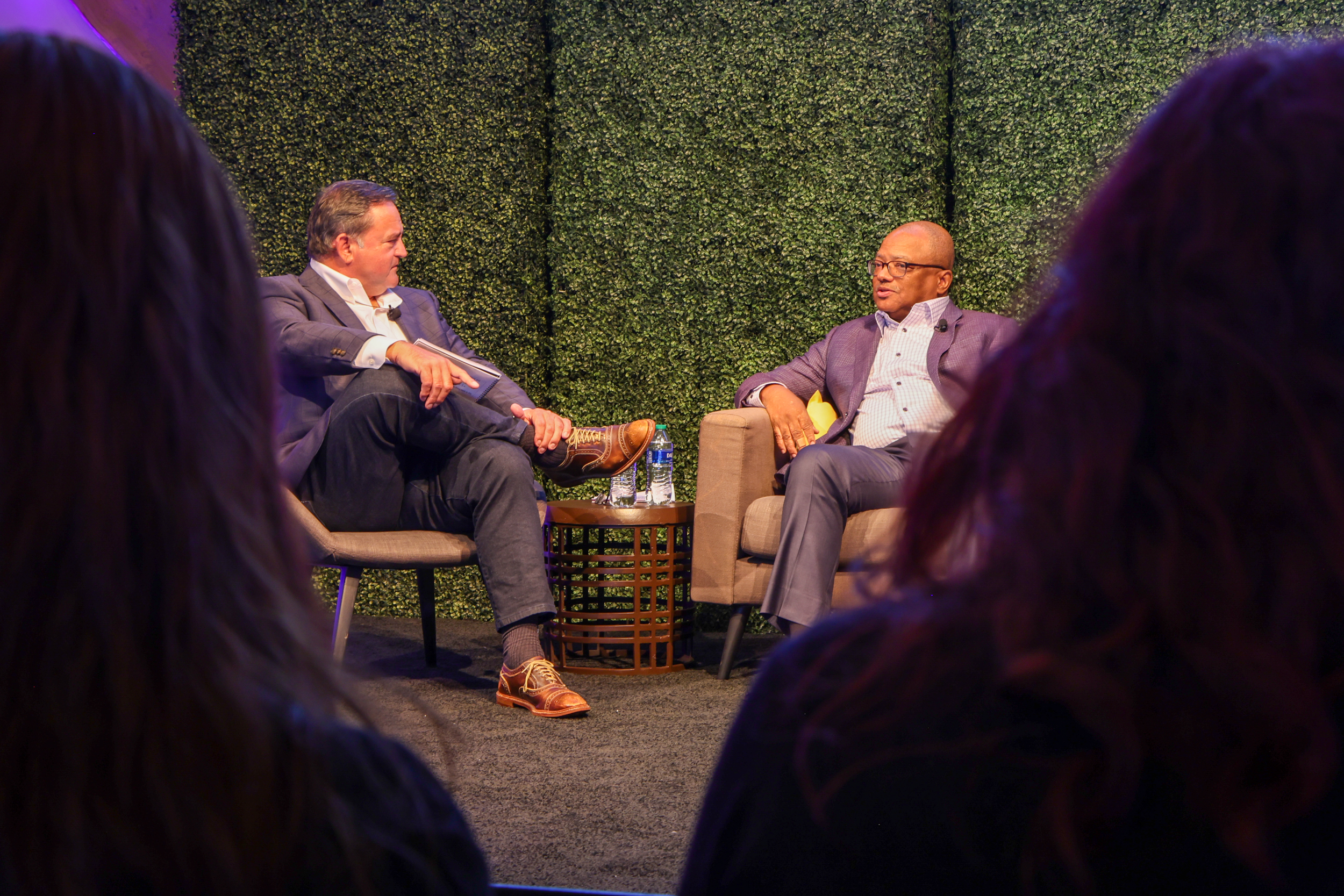Comcast California wants everyone in the Golden State to have safe, reliable internet access.
Last Friday, it took the next step toward making this goal a reality by hosting an inaugural Digital Equity Summit at San Francisco’s The Pearl.
Featuring fireside chats and panels with executives, program directors and community leaders, the daylong affair also provided ample opportunities for attendees to share best practices and identify challenges when it comes to closing the digital divide.
For Comcast EVP of digital equity and public policy, Broderick Johnson, the summit marks the end of a busy week that’s seen him tour the state to open Lift Zones, which provide free WiFi access in neighborhood community centers.
Before arriving in San Francisco, he told The Standard his tour included a stop in Fresno, where Comcast opened a new Lift Zone at Saint Rest Baptist Church along with five new Lift Zone locations in Stockton.
“They have an incredible community there in southwest Fresno,” Johnson said. “It’s a part of Fresno that has largely been left behind, but with the resources that we have, we were able to launch a Lift Zone for them yesterday. We also provided $25,000 in funding to help support people to get the technical skills they need there as well.”
Though the issue of inequitable internet access precedes the pandemic, demand for distance learning, remote health care and more has now made the matter explicitly urgent.
That’s why Comcast launched its nationwide Lift Zone program in September 2020. To date, more than 1,250 Lift Zones are now up and running across the country–with over 150 of them here in California. The program operates as part of Comcast’s Project Up, a bold initiative to advance digital equity backed by a $1 billion commitment.
Sponsored by
Even with the backdrop of the pandemic, however, Johnson shared that his vision for a more equitable digital future is one that stretches back decades.
“For me, the digital divide discussion goes back to 1998, when I was working for President Clinton,” Johnson said. “We did events in the White House on the digital divide that focused on access because so few people in the country could even connect at that point. Now access is ubiquitous in many urban areas, so the focus has morphed largely into an issue of adoption.”
As Friday’s Digital Equity Summit made clear, adoption itself is a multifaceted issue.
Throughout the day, rapid-fire response sessions from the audience elicited a range of needs. For some, adoption begins with having access to devices and a safe, reliable place to get online. In other cases, it may also require some educational infrastructure to ensure those with access understand and feel comfortable with various technologies.
Maysha Bell, executive director of youth achievement, innovation and impact for YMCA SF, expressed concern that concepts of discipline as they relate to technology may also need to be reevaluated in a world where access to the internet is so essential.
“Young people don’t understand why they can’t have their phone,” she said. “I recognize that as a digital equity need—the gap between generations on how we think about things like taking away a phone as a disciplinary measure.”
All observations and feedback from the summit were documented by Comcast staff, who will take everything the participants shared into consideration as they work to shape the company’s digital equity platform and strategy for 2023.
In a press release, San Francisco Mayor London Breed praised Comcast California for its efforts to expand local internet access in a moment of great need.
“Comcast’s continued partnership and dedication to our communities have resulted in allowing more students, children, seniors and families to get connected to the internet,” said Breed. “Public private partnerships like these allow us to ensure that all of our communities have access to services they need to thrive.”
For Johnson, getting to culminate an inspiring week with the Comcast Digital Equity Summit in San Francisco was especially gratifying.
“We are here to celebrate our community partners, who have remained focused on addressing the digital equity divide for some time,” he said. “It’s great to say thank you, but it’s also important to say, ‘Let’s collaborate even more!’ Some of these folks may not have met each other before, but they’re doing similar work. We’re saying, ‘Comcast is here to continue to support you.'”

